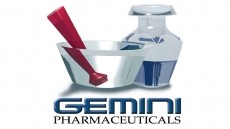Vitamin E and prostate cancer - anything concrete?
cancer, Harvard doctors have claimed at the end of a year that has
seen sales of the vitamin plummet.
But the article published in Harvard Men's Health Watch entitled Vitamin E and prostate cancer: where do we stand? does not clarify the situation for its 100,000 subscribers, most of whom are general consumers.
The conflicting evidence has left consumers unsure of the benefits and wary of the harm. The supplements industry has seen vitamin E market share nose-dive with market reports showing sales have declined by 40 per cent over the year.
The drop in the market came on the back of research published in the Annals of Internal Medicine (October 2004) that concluded: "Those who take greater than 400 IU of vitamin E a day are about 10 percent more likely to die than those who do not."
The supplements industry has fought hard to limit the damage effects of the study on sales. The Council for Responsible Nutrition criticized the research as headline grabbing, saying that the conclusions are drawn for the whole population based on people who were already at a higher risk of death - that is, cancer, heart disease, Alzheimer's, Parkinson's and kidney failure patients.
Explaining the timing of the new article, Dr Harvey Simon, editor in chief of Harvard Men's Health Watch newsletter, told NutraIngredients-USA: "Men are vitally interested in anything that may affect the risk of prostate cancer. The stories about vitamin E and prostate cancer have been confusing and contradictory. So we decided there was a need for a state-of-the-art review."
The newsletter points out that the US government's Preventive Services Task Force (USPSTF) cannot recommend for or against the use of vitamin E supplements of for the prevention of cancer, despite findings of a major study.
The Alpha-Tocopherol, Beta-Carotene (ATBC) Cancer Prevention Trial, finished in 1993 and proposed a beneficial link between vitamin E intake and prostate cancer.
The study, published in the New England Journal of Medicine (1994, Vol. 330, Issue 15, pp. 1029-35), reported that men taking a supplement of alpha-tocopherol (a form of vitamin E) had 32 per cent fewer cases of prostate cancer and a 41 per cent reduction in prostate cancer deaths.
Almost 30,000 male smokers were followed for up to eight years.
The follow-up study, published in the Journal of the American Medical Association (2003, Vol. 290, pp. 476), showed that the rates of prostate cancer returned to normal after the end of the supplementation trial.
"The ATBC research provides some support for vitamin E, but it's not conclusive," said Dr. Simon. "Although it was a well-conducted clinical trial, its primary goal was to evaluate lung cancer. More important, all the subjects were smokers."
The situation is complicated by the source of the vitamin E, with alpha-tocopherol, the form found in supplements, proposed to have a lower impact than gamma-tocopherol, the form usually found in foods.
The European School of Oncology also believes that the current evidence is not sufficient to confidently advise an increase in vitamin E intake. "Routine vitamin E supplementation can not be recommended for all men … in fact some studies have shown more deaths from strokes in those groups taking vitamin supplements."
The recommendation of the ESO is eat a diet with a rich natural source of vitamin E.
Further evidence will come from the Selenium and Vitamin E Cancer Prevention Trial (SELECT), which is specifically focussed on prostate cancer, unlike the ATBC research. This study, started in 2001, is following 32,000 male volunteers and will take up to 12 years to complete.
The situation remains hazy and it seems there will be a lot more sitting on the fence until the results of SELECT are announced.












